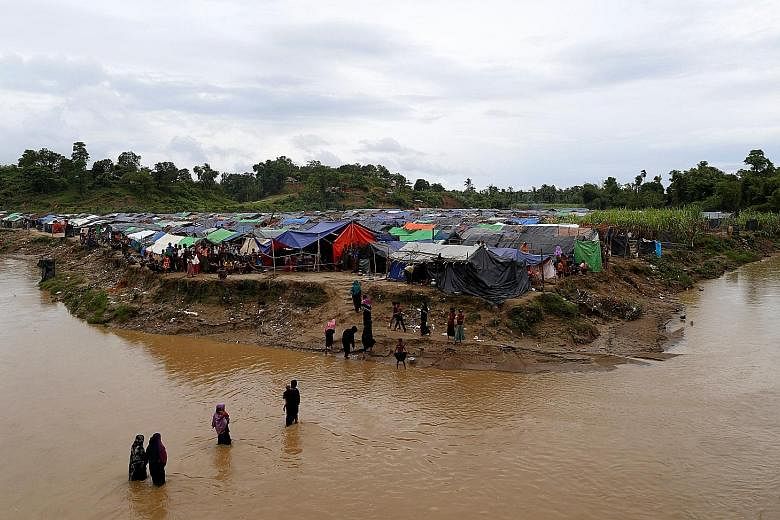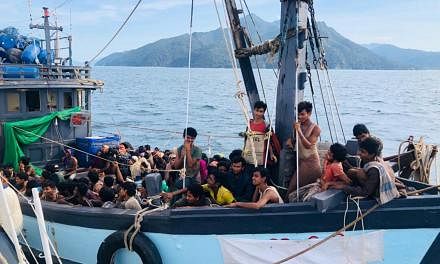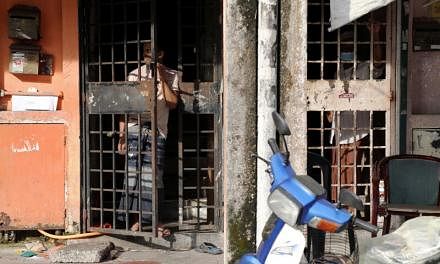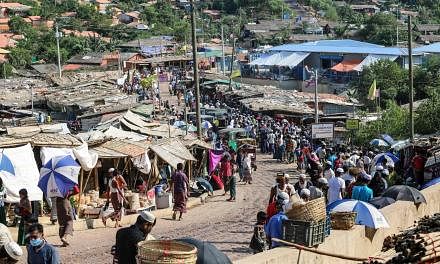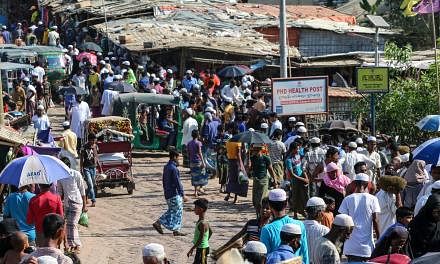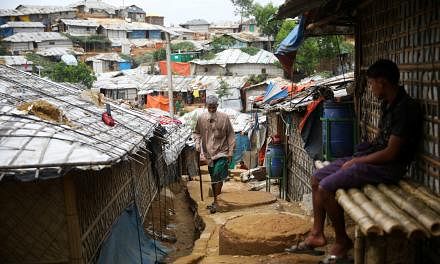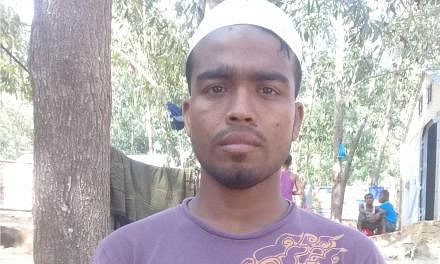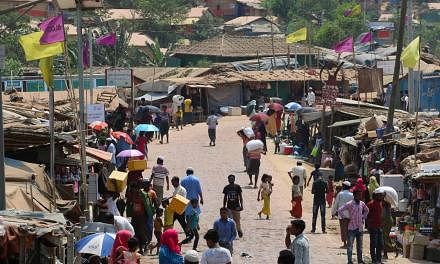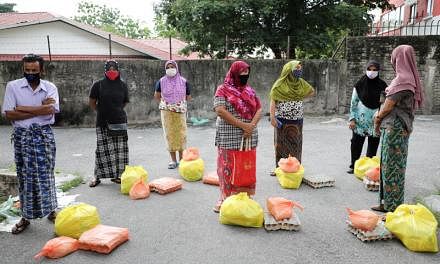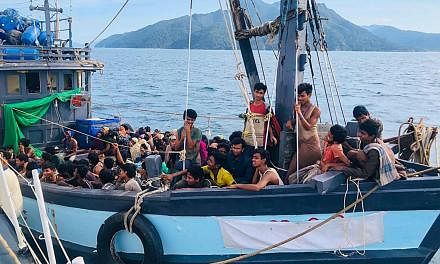TOMBRU (Bangladesh) • For three weeks Dil Mohammad and his family have been stranded on a thin sliver of land between Bangladesh and their native Myanmar with thousands of other Rohingya, after running for their lives when their village was torched.
More than 400,000 Rohingya Muslims have now arrived in southern Bangladesh seeking sanctuary from violence that the United Nations says likely amounts to ethnic cleansing.
But unlike those arriving now, thousands of Rohingya who fled in the early days of the crisis that erupted last month were initially blocked from entering Bangladesh. Too afraid to go back to Myanmar, they set up camp in a small area of no-man's-land where they have been ever since, waiting for the world to force the country they consider home to take them back.
"We have no intention of going to Bangladesh. We want to go back to our native land," Mr Mohammad told Agence France-Presse in the camp.
The 51-year-old rice farmer said 150 families from his village of Mae Di in Rakhine state were now living in the makeshift settlement after fleeing an attack by the Myanmar army and Rakhine Buddhists.
His adult son, who was shot as they fled, is being treated in Bangladesh. But although the Rohingya are now being freely admitted to Bangladesh, Mr Mohammad does not intend to join his son.
He and the thousands of others living in the camp have regular food deliveries and access to clean water, medicines and even a rudimentary washing area.
Much of that is down to Lieutenant-Colonel Manzurul Hasan Khan, who as the local commander of Border Guard Bangladesh is responsible for policing the frontier with Myanmar. He was one of the first in Bangladesh to become aware of the unfolding crisis when guards at the hilltop border post of Tombru heard gunshots and mortar fire coming from Myanmar in August.
Lt-Col Khan's first instinct was to try to call his counterpart in Myanmar for a flag meeting, whereby military commanders meet on the border to try to resolve tensions. Before he could get through, he saw that women and children were crossing over the hills of Myanmar into the valley below.
In the days that followed, he would witness the devastating effects of the crisis at first hand as more and more people arrived. One woman arrived with her leg blown off, apparently in a landmine explosion on the Myanmar side.
Lt-Col Khan admits that the Rohingya will not be able to stay in no-man's-land forever but is happy to have done his part. "These people may stay for a long time. Bangladesh is a poor country," he said. "But we have offered the hand of help, and that makes me proud."
AGENCE FRANCE-PRESSE
